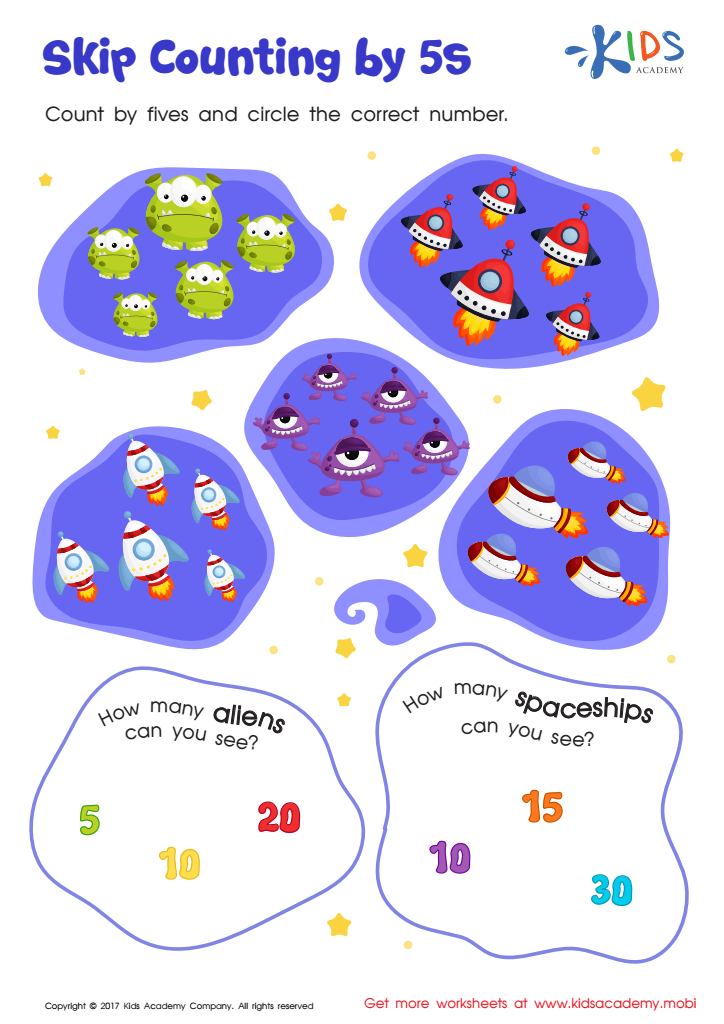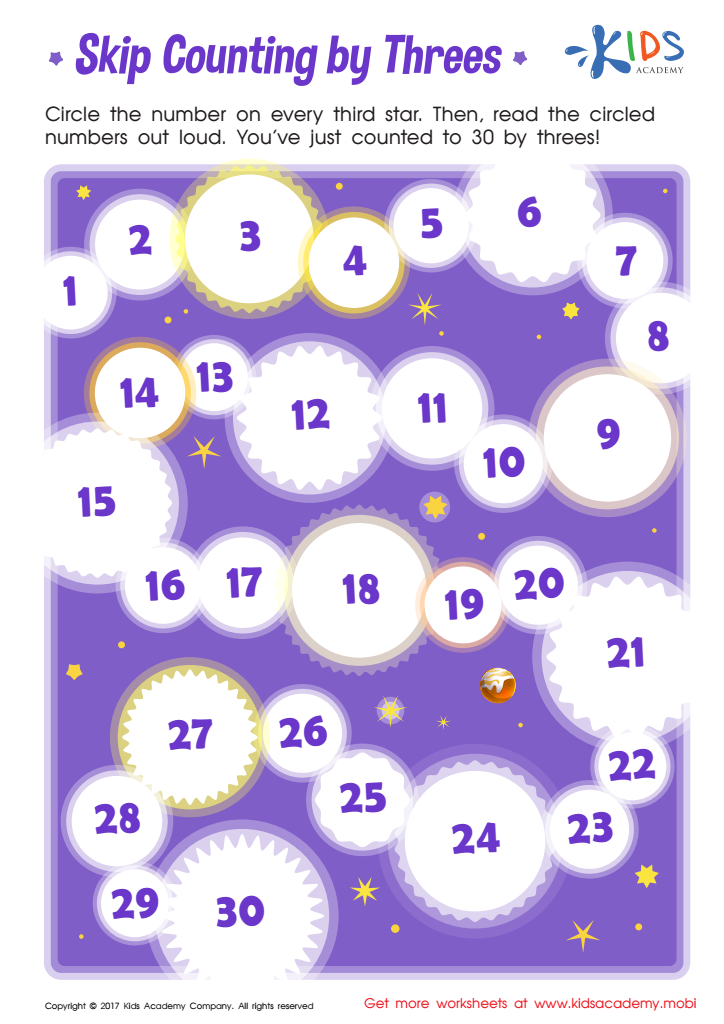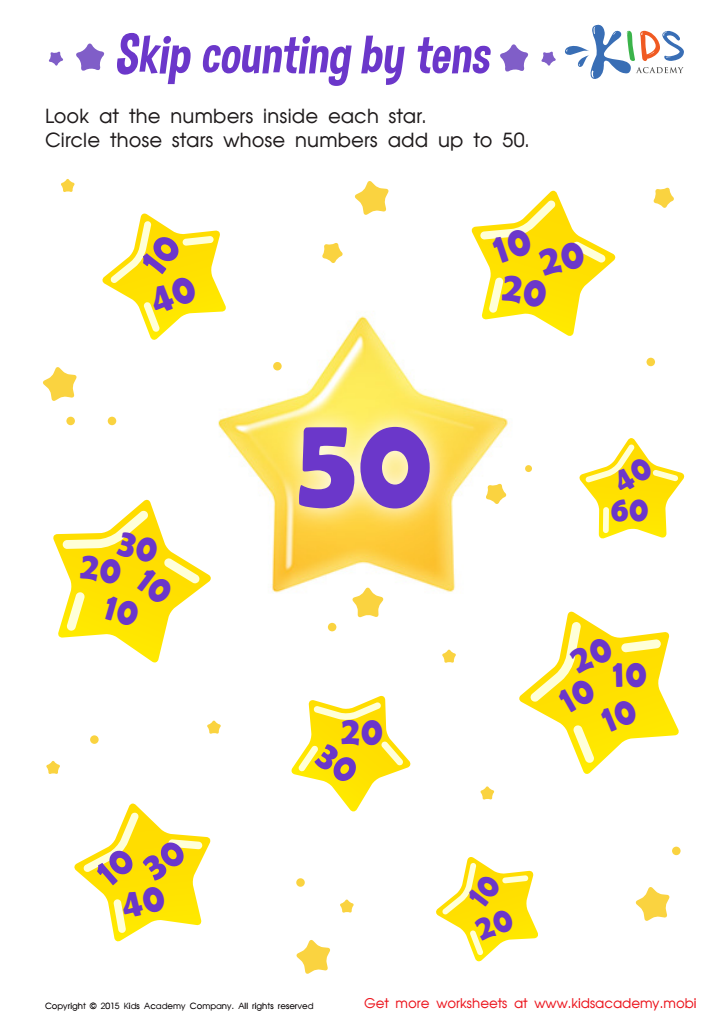Understanding skip-counting Math Worksheets for Ages 6-7
3 filtered results
-
From - To
Discover the joy of learning with our "Understanding Skip-Counting" math worksheets, tailored for ages 6-7. These engaging and colorful worksheets help young learners grasp the concept of skip-counting, an essential math skill for advancing their number sense and arithmetic fluency. Perfect for both classroom and home use, our Skip-Counting worksheets feature a variety of fun, interactive activities designed to motivate children and build confidence in their counting abilities. Encourage your child's mathematical journey today and watch as they skip their way to success with ease and enthusiasm! Visit Kids Academy for your printable worksheets.


Skip Counting by 5s: Aliens and Spaceships Printable


Skip Counting By Three Printable


Learn Dozens: Skip Counting by Tens Printable
Understanding skip counting is crucial for children aged 6-7, as it lays a foundational stone for higher mathematical concepts and everyday numeracy. Skip counting—counting forwards or backwards by a number other than one, such as by twos or fives—plays a key role in developing number sense. For young learners, it helps them see patterns in numbers, a skill critical for mental math and problem-solving.
Mastery of skip counting directly relates to learning multiplication and division. When children understand how to skip count by 2, 3, 5, or 10, they can more easily grasp the concept of multiplication as repeated addition and division as repeated subtraction. This early exposure makes formal multiplication lessons more intuitive and less intimidating as they progress in their education.
Moreover, skip counting aids in the development of quick, accurate counting and estimation skills, useful not just in school but in real-life scenarios such as counting objects, time managing, and making purchases. It also enriches a child's ability to recognize and create numerical patterns, further enhancing cognitive growth.
Most importantly, early proficiency in skip counting builds confidence in children. This confidence fosters a positive attitude towards math, increasing their eagerness to engage with more challenging mathematical concepts in the future. Thus, parents and teachers should emphasize skip counting to equip children with solid numerical foundations and a love for learning math.
 Assign to My Students
Assign to My Students




















